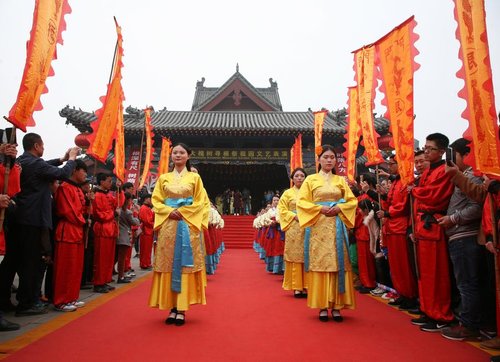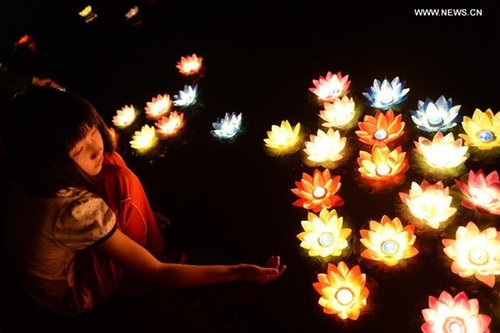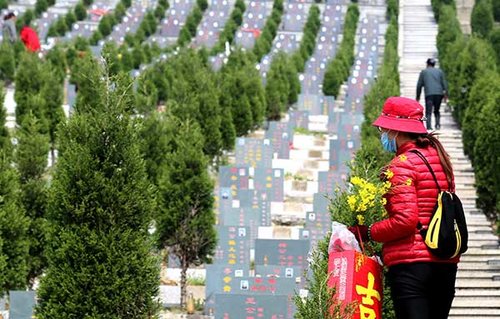
Paying respects to ancestors at Hongtong Dahuaishu Memorial Garden, Hongtong county, Shanxi, on April 4, 2016. [Photo/Xinhua]
Qingming, also known as Tomb Sweeping Day, has been a traditional festival for Chinese to commemorate and pay respects to their deceased relatives and ancestors. Our foreign readers share their thoughts on the festival.
Objchina (Nigeria)
I once caught a glimpse of how the festival was being observed. It was a wonderful but solemn festival, because people were remembering their loved ones who had traveled to the great beyond. I saw what Chinese people were doing with flowers, brooms and burnt fake paper money, as well as burnt paper iPhones. I was told they were offering those fake paper iPhones and money to the dead so that they could use them in the land of the dead.
Nosherwanabbasi (Pakistan)
I am a Muslim from Pakistan and it reminds me of such similar activities. We don't have a specific day or festival for visiting tombs and graves, but we usually visit every year on Islamic festivals such as on the two Eids. We visit graveyards and clean gravesites. We also light candles and pray for peace in the hereafter. Such events are very healthy and play a vital role in keeping social life alive. I have also noticed that Chinese people are focused on this, asking their children to visit tombs and graves on this festival to continue this tradition in the next generation.
Markwu (Malaysia)
The biggest motivator to make offerings during the annual event is to remind oneself that the deeds of support and comfort by those who have passed on are still remembered as humbling lessons of the fragility of life, touchstones of cultural humanity, and the unbroken thread of unspoken gratitude. All three transcend the time people have - which decreases year by year — for we will inevitably one day join the stream of those who have moved on.
Like many others, the Chinese like to close the loop of life.
It's great to see more and more people each year showing up for the festival. Modernization increases the value of cultural heritage and that should say something for humanity.
Smile1233 (Thailand)
Why do you even call it "tomb sweeping"? No one I know goes to sweep any tombs. It took me three years to figure out you were talking about Qingming. The spirits benefit from prayers, and a stranger's well wishes are not wasted if he is sincere. While I don't want this tradition to end — because it's a fun, bonding social gathering — the spirits of your deceased loved ones can benefit from your prayers wherever you are, so you don't necessarily have to visit their burial places.
ColinSpeakman (UK)
Qingming is a sad day for those remembering lost loved ones. It has continued as China develops but that development and relocation of younger families to cities as migrant workers means the grandparents' tombs are not so easy to get to. There is also a rise in burials at sea as land shortages occur. For those who pay their respect to the deceased, there are some interesting traditions, including keeping relatives up to date with the latest technology. So families will take along an iPhone or iPad and perhaps burn a cardboard copy of one. They are likely to burn money in case the relatives need it. Of course new flowers and a general cleanup are important too.

A girl floats river lanterns in a river at Wanli District of Nanchang, capital of East China's Jiangxi province, April 1, 2015. As the Qingming Festival, or the Tomb-Sweeping Day, draws near, citizens in Nanchang floated river lanterns to mourn for their deceased family members instead of burning incense and paper money as in the past. [Photo/Xinhua]

A woman pays her respects at a graveyard in Wenling, Zhejiang province, on April 4, 2017.[Jin Yunguo/For China Daily]

